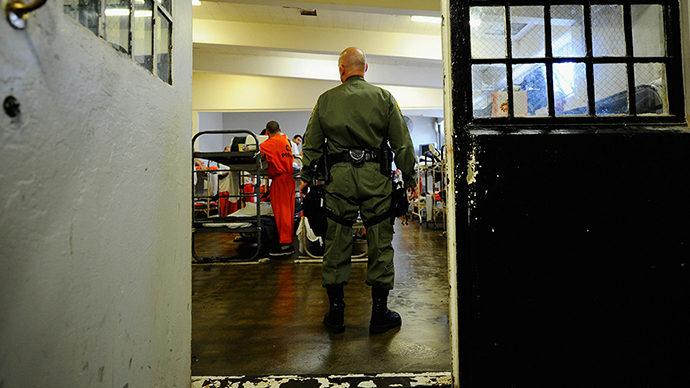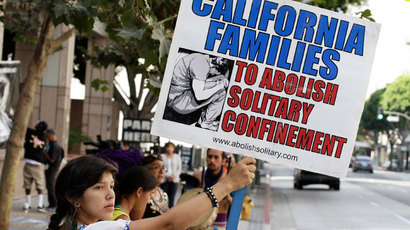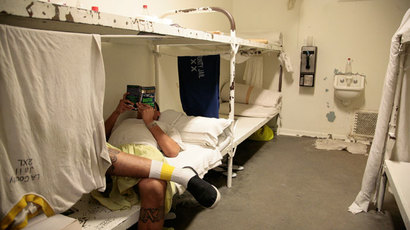High court orders California to release thousands of prisoners

On Tuesday, the US Supreme Court rejected an appeal to halt the early release of thousands of California prison inmates by the end of the year.
The Supreme Court did not comment on its decision, which supports
a previous ruling by a lower court forcing California to free
about 9,600 additional inmates by the end of the year. In 2011,
federal judges ruled that the state must improve prison health
conditions. Reducing the number of inmates was included as part
of the process.
Since then, California has cut its prison population by about 25,000 inmates. State Gov. Jerry Brown claims that releasing even more could jeopardize public safety. It remains to be seen whether or not counties in California are equipped to handle the influx of inmates scheduled to occur.
"We haven't projected for them. They are not part of our population modeling. So you can't give them to us. We're not ready for this yet," Jerry Powers, a member of the Los Angeles County Probation Department, told the local ABC news affiliate in Los Angeles.
According to ABC, Los Angeles County could find itself making
room for about 3,000 inmates in January 2014.
"The state's reclassification of mentally disordered offenders so that they're no longer mentally disordered offenders because of a signature on a piece of paper has resulted in an undue burden to our local county probation officers," Los Angeles County Supervisor Mike Antonovich said.
California is still trying to strike a deal with the courts that would delay the release of prisoners beyond the start of the new year. Gov. Brown has also signed a bill that would allow the state to hold inmates in private and county jails should it fail to arrange a delay of the January deadline.
Attorneys representing the inmates are currently in the midst of settlement negotiations with the state. At least one is arguing that Tuesday’s decision should compel California to begin complying with the judges’ ruling.
“They already lost once and the Supreme Court said you don’t get a second bite at the apple,” Michael Bien, one of the attorneys representing inmates, said to Time. “Hopefully it’s the signal to all the parties that it’s time to comply with the three-judge court’s orders and move on with the reforms that are necessary, rather than resisting.”
This is just the latest chapter in a dispute that began in 2001,
when a lawsuit filed on behalf of inmates argued that poor prison
conditions violated inmates’ constitutional rights against cruel
and unusual punishment. When federal judges agreed, California
was required to upgrade its medical facilities and staff, and
reduce overcrowding.
The Supreme Court’s decision to reject California’s appeal comes
just over one month after inmates ended an attention-grabbing
hunger strike at the state’s largest prison. In an attempt to
protest the poor conditions they found themselves in because of
the prison’s lengthy solitary confinement policies, about 30,000
inmates began refusing meals in a strike that would last for two
months. By the end of the second month, the number of
participants fell to 100, but lawmakers agreed to hold
legislative hearings this autumn to discuss policy change
proposals.














